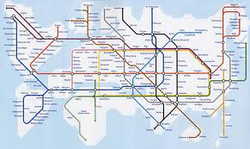The French telecommunications regulator launches on May 16, 2012, a consultation on its report to the Parliament on the neutrality of the Net. It will be closed June 22, 2012.
http://www.thejournalofregulation.com/spip.php?article1458

The French regulator of telecommunications (The French regulatory authority of telecommunications and Posts - ARCEP) has developed a draft report to the Parliament and the French Government on the issue of Internet neutrality. By providing it to everyone on its site on May 16, 2012, the regulator opens a public consultation, which will be closed on June 22, 2012. The regulator said that the Internet is a "collective good of general interest" and that the increase in its use requires very significant investments. It is in this context that the question of the neutrality of the Internet must be discussed.
© thejournalofregulation
The issue of Internet neutrality is a highly political issue, significant economic issues, which has not the same legal history in the United States and in Europe.
This is explains certainly why in the meantime to this self-employment of the regulator that it submits to public consultation, this same regulator conducts with the services of the Government working group, open to operators in the sector, whose findings will be published in October 2012.
Historically, ARCEP published September 30, 2010 ten proposals to establish net neutrality, which certainly open access to bandwidths to operators and users but also conserve the investments made by the Internet industry and encourage them to do other one.
A concern for balance, found in a book of an economist, Member of the College of the regulatory authority, is the mark of this reflection. The Act of March 22, 2011 has entrusted the regulator to review the progress on the question of the neutrality of the Internet, while North American and European legal systems move forward. In the draft report now under consultation, the French regulator emphasises on the fact that the market must be "dynamic and competitive", to allow quality offers and offer consumers of services corresponding to their needs.
In the release by which the regulator informed of the availability of its draft report, it would take advantage of that to indicate that it can trust competition, but also tools of regulation (of procedural type) that are the transparency to get quality services without putting in place systems of the Internet so-called "multi-speed" that is to say subscribers who pay a price more or less high that customers will have access to services more or less quickly.
Thus, now, regulator warns that it establishes a mechanism to monitor the quality of service and informed (this looks like quite a threat...) it may intervene as a preventive measure if the quality is insufficient or if Internet access at several speeds were in place.
Finally, we note that this release goes beyond the mere provision of a working document, the regulator review his work of 2010, by informing that he has identified traffic management practices, which may interfere in some cases the principle of neutrality.
We can name the prioritisation of certain customers for some sites to some other subscribers. The regulator will examine the legitimacy of these practices and validate them or not. He already noted that some have disappeared but notes that others, but not in accordance with its "recommendations" persist.
It warns that "Parliament has endowed the ARCEP of skills that will enable to implement its recommendations". In elegant terms these things are said... This means that the recommendations will transform them into orders and that the operator who will not follow the old "recommendation" will be punished.
We can note once again the power of the soft Law in regulation, which is simply a way of saying in advance to the operators the rule which will compel them tomorrow if they do not comply today. This particular mode of Government, public consultation can then appear as a sort of compensation.

your comment